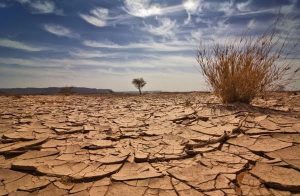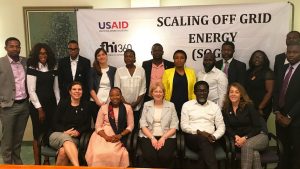By Okafor Akachukwu
I recall an encounter on 23rd December 2011 in Westfield, London with a sales man of some luxury skincare products who urged me to buy a set of his products (less than 75ml) for over £1,000. Not only was it unaffordable at the time, but what he told me next, which could be interpreted as “this product is not for you.” Thinking that I was a Londoner, he said, “You know London is polluted, you need this product.” I smiled, wondering what Lagos will be called, if London is polluted and whether this product will be potent in Lagos state. Since my flight to Lagos was the next day, I smiled to the sales man and said, “see you tomorrow.” I hardly look forward to being in Lagos. The traffic, the pollution – fumes from cars, dirt and floods have kept me away from the city which once I called home. The air pollution in Lagos is still yet to lessen, obviously due to increased use of dirty fuel from Europe as a recent BBC article reported. This story also follows from a report in September 2016 by Public Eye, a Switzerland based environmental and economic group, accusing most Swiss based commodity traders of exploiting weak regulations to export toxic diesel and gasoline laden with sulphur, 200 times more than the limit accepted in Europe, into West Africa including Nigeria. While government has given importers a six-month grace period to comply with new regulations, I am looking forward to action that will enhance the enforcement of our environmental laws on waste management and new regulations and policies to curb the growing pollution from waste in our cities and utilize them for power generation purposes.
Recently it was reported that Sweden has run out of waste to burn for electricity generation and had to rely on imports from the United Kingdom and other countries to keep the plants running. The question is why can’t Nigeria turn the waste that are taking over its roads, fields and street corners into energy – electricity and heat for industrial use? The key answers are: 1.) Lack of right policies – leaders and policy makers do not have adequate knowledge on the potential in waste management which could lead to policy enforcement, revising regulations and formulation of new ones, if necessary. 2.) Lack of institutional capacity to effectively engage with international mechanisms on sound environmental management 3.) Wrong sociocultural interpretations and understanding of waste and waste management.
I worked on a policy proposal that would help improve the efficiency of UK’s energy from waste sector to comply with European Union Waste Directives, in my graduate programme. What I realised was that everything starts with and must continue with policy, directives, legislations, rules and definitions, even of the simplest of things. What this means is that the government has to define in detail what waste is and what waste is not; how best to manage waste based on categorizations or hierarchy for different sections of the economy – home, office, hospitality, agriculture and manufacturing and so on. In a nutshell, the waste hierarchy starts from: waste prevention, reuse, waste recycle/compost, waste recovery (to generate electricity and heat) and finally waste disposal if the waste cannot be managed at any of the points in this hierarchy. Interestingly, waste prevention and reuse are entirely dependent on individuals to adopt or enforce based on their knowledge. This knowledge can be learned, depending on sociocultural understanding and effective practice of waste disposal. These are areas where policies are very helpful.
For instance, the waste – slurry and manure generated in agricultural farms (pigs, cows, poultry) can be turned into biogas to sustainably power facilities in the farm and households around the farm facility. That is part of how Feldhiem, a small German town known for its energy independence and self-sufficiency on renewable energy (which the Senate President recently visited) generates its electricity. Also, other agricultural biomass waste products which have high calorific value can be used as fuel in biomass gasifiers to generate electricity and heat. While there are funds for Nigeria to harness energy potentials in waste, records indicate that over 40% of agricultural waste in Nigeria are not converted into useful purposes.
Nigeria is lagging in accessing CDM funds compared to other African countries and there is need for the use of these funds in Nigeria. Nigeria with 4.9% is trailing behind Brazil – South Africa – 27.6%, Kenya – 8.9%, Uganda – 8.1%, Morocco 7.3% in the number of CDM projects registered in the continent. This is more of a wide institutional lack of capacity which government needs to address. My observations from studying Nigeria’s use of United Nations Framework Convention on Climate Change (UNFCCC) Clean Development Mechanism (CDM) funds revealed that out of 16 submitted projects, 6 located in Lagos state, 5 in Delta state, 1 each for Niger and Ogun, only 11 were registered with Delta having 4 registered projects, Lagos had 2 registered projects, the other 4 projects were rejected, with terminated validation or were negative. Of all the registered projects only one was a landfill gas project for Ikorodu (Lagos) composting facility which was a waste to energy project. Why did other highly populated states with waste management challenges not develop CDM waste management projects? How come all projects located in Delta state were registered after submission and validation while only 2 out of 6 projects located in Lagos were registered? What is different from the projects proposed to be sited in Delta state and Lagos state? What were the levels organizational and institutional partnership between the state government agencies and the project developers? These are a few questions that can help in the development of bankable and viable CDM and climate funded projects especially in waste management/low carbon energy generation in Nigeria. Nigeria would have gotten more landfill gas projects registered if state governments were interested and sought partnership with parties to the Kyoto protocol that are eligible to sponsor these projects.
In 2014, I stumbled on an ongoing €2.2M research work called Dirtpol. Dirtpol was an interdisciplinary and international research to understand the cultural politics of dirt in Africa from 1880 – Present, led by researchers at the University of Sussex and partners at the University of Lagos, Nigeria and Kenyatta University, Nairobi. One of the research themes involved a “comparative examination of the cultures and economies of recycling, consumption and waste disposal.” The findings of this research would help to understand how we perceive waste, value and manage waste which is socio-culturally ingrained depending on different cultures, environment, experience and practice. In essence, research work like this could help government and private businesses involved in waste business to develop effective waste handling and disposal programs that would change poor cultural behaviour with waste. This will mean that more people will get to use dustbins, separate waste into different forms – organic, degradable and undegradable and turn waste to wealth. This is when waste can effectively be collected, recycled or processed for energy and heat generated purposes. For those that find their way to landfills, the methane gas can be harnessed for electricity generation purposes. Incidentally the methane that many landfills in Nigeria generate are yet to be harnessed due to low capacity of Nigeria’s institutions to engage with international mechanisms and programs that will help harness our waste to energy potentials.
Solid waste pollution and lack of action of governments and private businesses to address the challenges can be quelled when there is a realization of the enormous potential to generate electricity and heat from waste in Nigeria. The value chain benefits of recycling and proper waste management to employment and wealth creation is significant and who knows we may join Sweden as a waste importing nation if we realize the wasting potential in waste.
Okafor Akachukwu, is the Energy and Environment Editor, The Initiative for Policy Research and Analysis (InPRA) and a Science Policy Research Unit (SPRU), University of Sussex trained Energy Policy, Innovation and Sustainability Expert. Email: akachukwu_okafor@yahoo.com





